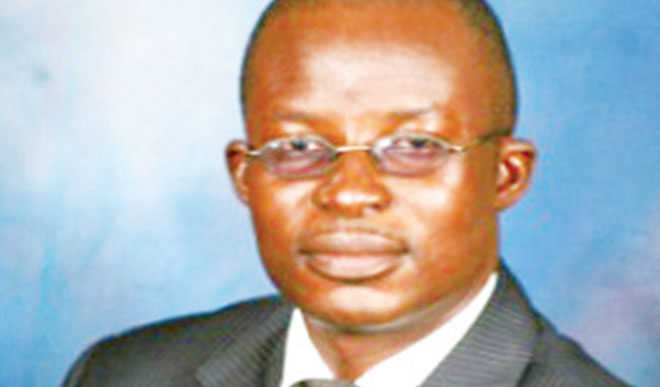17m housing deficit: ‘There’s need to determine spatial spread’
Peter Kuroshi is the Registrar, Council of Registered Builders of Nigeria (CORBON). He spoke on how housing can be made affordable for low-income earners. Nigeria is estimated to have 17 million housing deficit. How can this gap be bridged? The logical thing to do is to step up the production of housing. But the solution […]


Peter Kuroshi is the Registrar, Council of Registered Builders of Nigeria (CORBON). He spoke on how housing can be made affordable for low-income earners.
Nigeria is estimated to have 17 million housing deficit. How can this gap be bridged?
The logical thing to do is to step up the production of housing. But the solution is not as simple as I present it. The first thing is to confirm the figure and do a mapping to determine the spatial spread of demand and supply because reliable data are key to housing challenge. For instance, specifically we need data on supply, demand, mobility and market activity using government and private data sources to generate data that create new markets. There should be a government policy to encourage housing production.
So what are the challenges in housing sector?
I will look at the challenges from the perspective of deficit as a result of affordability. There are what I call barriers to affordability or barriers to affordable housing. These include land title and titling process.
But having mortgages would actually help in making some of these houses actually affordable but not many people can think of mortgages because of the requirements. Most mortgage institutions that give credit facilities prefer to have land title as collateral than any other thing, so there is need to address the challenge of title.
Also, there is the issue of accessibility to the mortgages. How many people can access mortgage and how many mortgage institutions are available? There are many Nigerians whose income cannot meet up the mortgage condition.
According to the World Bank, only three percent of the population in Africa has an income sufficient to support a mortgage. But I think government needs to play this important role of bringing down the cost of production of housing because there are certain costs that are beyond the developers in producing houses.
So how can affordable housing be achieved?
Affordable housing can be achieved by making land available, making titling process easier. Make land available because the land use policy in the country does not really encourage mass housing development. So there is need to look at the land policy to see how we can make land more accessible to those who intend to build houses.
Also, there is need to make mortgages more accessible and have more mortgage institutions to service the ever increasing demand for mortgages. There is need to consider alternative solutions with respect to technology, materials, innovative financing and modes of delivery.
What do you think is responsible for incessant building collapse in the country?
Quackery is the major reason for building collapse incidents in Nigeria; people that have no business rendering professional services are doing so. The National Building Code and Acts establishing professional regulatory bodies spell out the specific roles and responsibilities of each profession in the built environment. So, when it comes to building production or what you may refer to as handling the construction works on site, it is the licensed builder’s responsibility — any other person doing that is considered a quack.
Therefore, with respect to what I have just said, quacks are persons who have received building education but not licensed by CORBON and those who have not been trained to be builders and including school dropouts.
The challenge of quackery can be solved by professionalizing the sector. The absence of an enabling Act has made it difficult to implement the provisions of the National Building Code. If we abide by the provisions of the code and with an enabling Act that sanctions infringements, incidence of building collapse will be greatly minimized.
Other contributory factors to building collapse include: poor standardization of buildings and building production resources.
There is allegation that the regulatory bodies in the building industry are not doing their work hence professional misconduct by members resulting in building collapse.
I think there are sufficient grounds for the regulatory bodies to disagree with this assertion. Virtually all the regulatory bodies are handicapped by the paucity of funds to sustain monitoring and evaluation of building projects. The absence of the National Building Code enabling Act is another reason for the so called allegations.
But now, the ICPC [Independent Corrupt Practices and Other Related Offences Commission] is ready to assist us. So through partnership or collaborative relationship with ICPC, I think we would be able to address some of the issues that we can’t address at the moment because of certain deficiency in the laws that support our function.
Activities of artisans in building industry are not being regulated. What is the body doing about it?
CORBON has commenced the process of licensing artisans and craftsmen. We have started with a temporary register of all skilled workers for building construction in the country. The temporary register will assist in designing and overseeing the implementation of a programme for skill and up-skilling of artisans and craftsmen.
Temporary registered persons will subsequently be licensed in order to have their information in the permanent register. But this will be based on their certification by the Nigerian Institute of Building (NIOB). The certification process will be preceded by assessment and verification of competence.
Ultimately, CORBON will provide to the public names, skill trades, phone numbers, contact address, the location of all licensed artisans and craftsmen. A building trade operative can easily be identified with an identity card that has biometric information of the artisan and building trade he or she is licensed to offer service.
